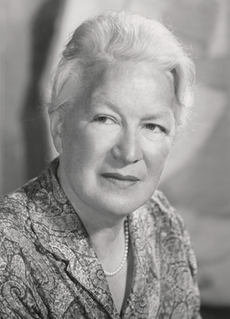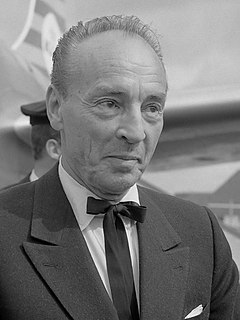A Quote by Jeanette Winterson
Two things significantly distinguish human beings from the other animals; an interest in the past and the possibility of language. Brought together they make a third: Art. The invisible city not calculated to exist. Beyond the lofty pretensions of the merely ceremonial, long after the dramatic connivings of plitical life, like it or not, it remains. Time past eternally present and undestroyed.
Related Quotes
We human beings have enormous difficulty in focusing on the present; we always thinking about what we did, about how we could have done it better.... or else we think about the future, about what we're going to do.... But at this precise moment, you also realize that you can change your future by bringing the past into the present. Past and future only exist in our mind. The present moment, though, is outside of time, it's Eternity.... It isn't what you did in the past the will affect the present. It's what you do in the present that will redeem the past and thereby change the future.
I am interested in the past. Perhaps one of the reasons is we cannot make, cannot change the past. I mean you can hardly unmake the present. But the past after all is merely to say a memory, a dream. You know my own past seems continually changed when I am remembering it, or reading things that are interesting to me.
art is the most general condition of the Past in the present. ... Perhaps no work of art is art. It can only become art, when it is part of the past. In this normative sense, a 'contemporary' work of art would be a contradiction - except so far as we can, in the present, assimilate the present to the past.
But the past does not exist independently from the present. Indeed, the past is only past because there is a present, just as I can point to something over there only because I am here. But nothing is inherently over there or here. In that sense, the past has no content. The past - or more accurately, pastness - is a position. Thus, in no way can we identify the past as past
Knowledge builds on the past and has its place. Wisdom is beyond time. It's the direct perception of reality as it is. And in this direct seeing of what is lies the potential of transformation-a transformation that is not merely a redecoration of the past but a transformation of humanity that embodies the eternally new.
Originally the structure was . . . a modern narrator who would appear intermittently and talk about his memories of his grandmother, which would then be juxtaposed against scenes from the past. But the stories from the past were always more interesting that the things in the present. I find this almost endemic to modern plays that veer between past and present. . . . So as we've gone on developing GOLDEN CHILD, the scenes from the past have become more dominant, and all that remains of the present are these two little bookends that frame the action.
When we meet a work of art, there's something about that encounter that isn't fixed in time, but rather, it unfixes time: the shaft opens. The past and present exist in the same moment, and we know, as beings, that we are connected. All the people who lived before us, all who will come after us, are connected in this moment.
Because you are obsessed with the idea of past, present, and future, you are forced to think of reincarnations as strung out one before the other. Indeed we speak of past lives because you are used to the time sequence concept... You have dominant egos, all part of an inner identity, dominant in various existences. But the separate existences exist simultaneously. Only the egos involved make the time distinction... a thousand years in your past or in your future - all exist now.
All normal human beings are interested in their past. Only when the interest becomes an obsession, overshadowing present and future conduct, is it a danger. In much the same way healthy nations are interested in their history, but a morbid preoccupation with past glories is a sign that something is wrong with the constitution of the State.





































